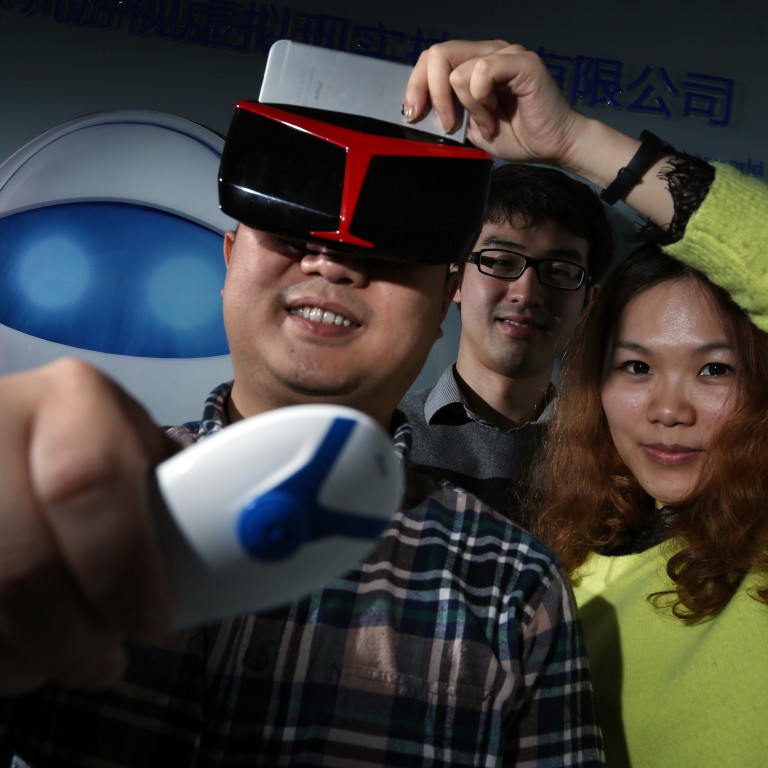
Hong Kong is losing the tech development race to Shenzhen
A small local market, high costs and a lack of knowledge of mainland customers are key barriers to Hong Kong becoming a technology centre
Arguing about Hong Kong and the mainland's competitive roles in technology and manufacturing achieves little until you can assimilate all the contradictory points of view and distil them into one picture.
The border and walls that exist between Hong Kong and Shenzhen are at the same time real and intellectual.
Hong Kong continues to act like a reluctant part of China worrying like a small town that is uncertain about its destiny, trying to restore its former economic fortunes, but only demonstrating that it has forgotten nothing and learned nothing.
But, across the border in Shenzhen, the landscape of consumers and manufacturing is evolving rapidly in different directions, spurring a home-grown technology industry.
"Historically, labour-intensive industries in China such as electronics have seen products and processes evolve through miniaturisation and digitisation over the years. This has indirectly reduced the labour component needed to produce them," said Peter Hopper, a partner and managing director of Strategic Decisions Group.
"However, the evolution of product and process of relatively low-cost items, such as shoes and apparel, have hardly evolved at all and continue to require a large amount of labour."
Hopper describes how the manufacturer/dormitory model is under serious challenge. The mainland labour force is less migratory because the government has improved living conditions in northern provinces. And the one-child policy has shrunk the workforce by 20 million to 30 million people a year.
The emergence of a white-collar labour force through the growth of university and technical school graduates, some of whose parents were factory workers, has dramatically altered the composition of the workforce. It represents an important driver for developing a technology industry in the country.
A large and permanent pool of young knowledgeable workers has made it possible in places like Shenzhen to pull together engineering, management and digital capabilities. Hopper said: "In-house manufacturing becoming a source of competitive advantage versus outsourcing."
The recently covered the start-up story of Gu Ying, Leo Zhang Fuji and Zhang Shinan, who set up TT-Kuaiche, a mobile carwash software application that expanded across the mainland.
"We are thankful to Hong Kong. It shaped and sharpened our business sense, and its freedom of internet and speech provided effective access to free and fast information from all over the world," Zhang said.
Like most mainlanders, they were probably amazed at what the internet really looked like outside of the mainland.
In Shenzhen, the landscape of consumers and manufacturing is evolving rapidly in different directions, spurring a home-grown technology industry
When they said, "We never thought of Hong Kong because its market is too small for such an app and the costs are too high for a start-up. And it's also hard to partner with young Hongkongers because most of them know little about mainland customers," they succinctly described the city's profound disconnect that prevents it from being a technology centre.
For mainlanders, it appears the city's only advantage is an unrestricted internet connection.
Hong Kong's high property costs are not necessarily an insurmountable obstacle. Office and apartment rents in San Francisco and Palo Alto are among the highest in the world, too. Despite Silicon Valley's disadvantages, employers cannot find that collection of programming, engineering talent and sheer creativity anywhere else in the world.
It is becoming easier to attract seed and venture capital funding in Shenzhen than Hong Kong because venture capital firms in Shenzhen, like in Silicon Valley, prefer to fund and work with entrepreneurs who are nearby and able to access the mainland market. Capital may be liquid and mobile, but it likes to stay close to talent.
The mainland's path to developing technology and advanced manufacturing industries is evolving more naturally than it is for Hong Kong. As a small city, both sustained and constrained by the Basic Law, Hong Kong cannot escape or even openly confront its main impediments to opening up its economy - its legacy of tycoon and narrow business interest domination.
Local entrepreneurs and investors cannot step out of their Hong Kong-style, intellectual comfort zone, which is why it easier to fund a restaurant or bar in the city rather than a technology start-up. Hong Kong is not only short on venture capital, but worst of all, intellectual capital.

